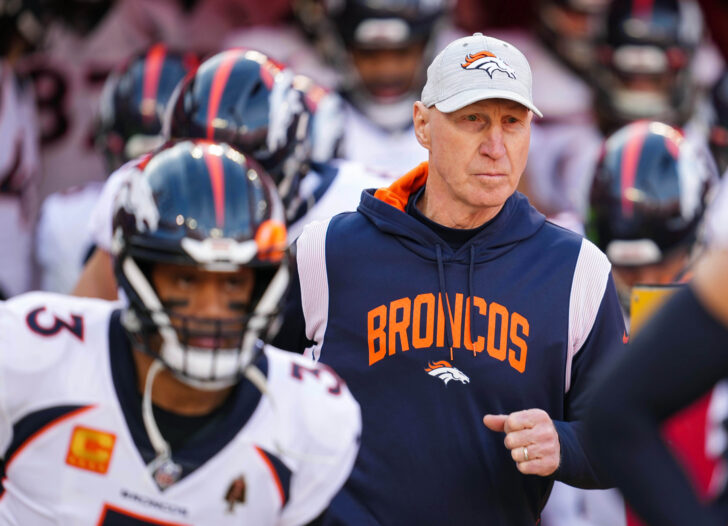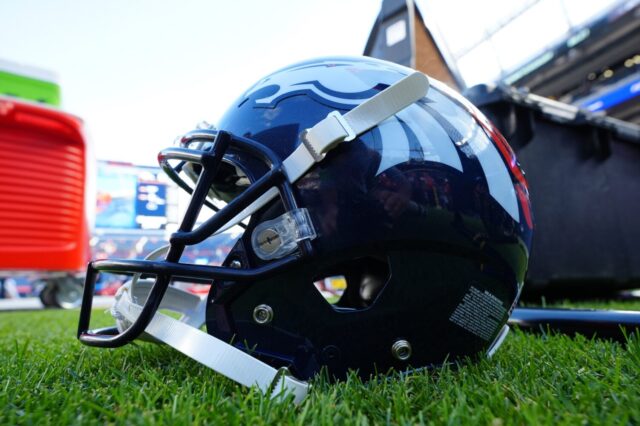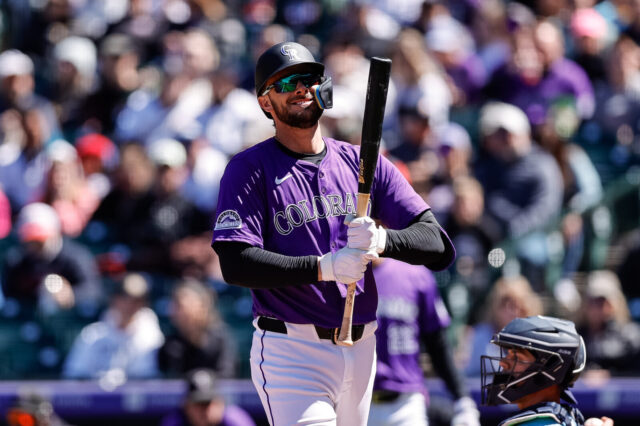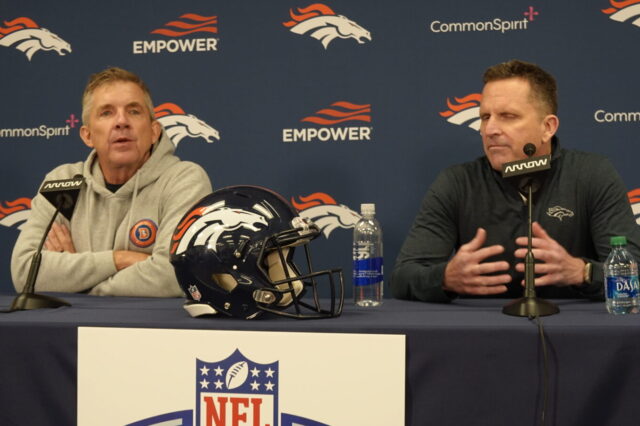Strike 1: If you’re a competitor at any level, losing any contest to a friend – or heaven forbid a family member – is about the worst feeling ever. Losing to your younger brother in a game of one-on-one hurts you to your core. So just imagine how it must have felt for new Denver Broncos owner Rob Walton – one of the richest and most successful business people on the planet – to have his new team destroyed on national television by the team owned by his cousin-in-law, Stan Kroenke.
The textbook definition of “last straw” for a failing head coach?
If winning matters more than profit, then absolutely. And with the firing of Nathaniel Hackett after the debacle in Los Angeles, the new Broncos ownership is showing that winning is the top priority.
That’s a great sign for the future of the Broncos.
When a new person or group spends big money to purchase a professional sports franchise, followers of the team can’t know yet exactly what they’re getting. Are the new people in charge making a business investment – looking to maximize profits like most big businesses do? Or are they in it to win it at any cost?
The in-season dismissal of Hackett gave Broncos County its first best indication that winning matters most to the Walton-Penner ownership group. They could have kept the rookie HC – whom they didn’t hire but whom they had a significant investment in – for two more meaningless games, but instead they sent a signal: The losing wasn’t acceptable. It’d probably have been more prudent – at least from a pure business perspective – to wait until the season was officially over, but they didn’t. This was not a “business matters most” decision.
That’s the way the late great Pat Bowlen operated, too. His Hall of Fame tenure as Broncos owner featured a win-at-all-costs approach. Bowlen wasn’t filthy rich – especially at the start – like some other owners (including Walton and Company) but he knew that winning on the field would not only satisfy his success-starved fan base, but also make his bottom line grow, too. And it did.
Ownership matters. A lot.
Now, the new owners – with Greg Penner as the point of the spear – appear ready to get back in the business of winning. The Broncos displayed a bit of a new attitude in the narrow loss to Kansas City. That’s the best news to come out of another dismal season.
Strike 2: What kind of offense will the new Broncos head coach – whomever he is – bring with him?
Hackett was supposed to be bringing back yet another version of the West Coast offense. That’s nothing new in these parts, but if you think about it, something has been seriously missing from the various WCO approaches we’ve seen around here since Mike Shanahan’s teams had the offense running like a machine back in the mid to late 1990’s.
A fullback.
Ever since teams around the league began going to multiple receiver sets, the role of the running back has diminished significantly. And the fullback has all but disappeared, even for teams that emphasize the run game. However, longtime Broncos fans will remember that back in the day with Shanny’s highly successful version of the WCO, fullback Howard Griffith played a huge role in the success of the offense. While Terrell Davis was rushing for 2,000 yards and getting all the accolades, Griffith was quietly doing his job with maximum efficiency, as a lead blocker, pass catcher and occasional ball carrier. Defenses had to respect him. That helped out in every facet of the offensive game planning.
Griffith retired after the 2000 season. Detron Smith was around for a year. Later, Kyle Johnson, Cecil Sapp played sparingly and finally Peyton Hillis – who was used as a featured back – arrived in 2008 before Shanahan was fired. McDaniels never made fullback a priority. By the time Manning arrived, the spread things out and throw it all over the field offense was all the rage. Even when Gary Kubiak arrived to take over for John Fox, he had to meld his offense with what Manning was accustomed to, and that did not include a fullback, either.
After Manning, the Broncos have only dabbled with fullbacks and actually had some success. Andy Janovich was the last of the big time fullbacks at Nebraska and did well in Denver before being traded to Cleveland. Even this year, during the Broncos win over the Arizona Cardinals, we got a brief glimpse of solid fullback play from Andrew Beck.
It makes you wonder if an offense that included a fullback as a lead blocker, pass catcher and occasional runner might be something that, say, Russell Wilson could flourish in? Consider this: During his best seasons, Wilson benefited from having bulldozing running back Marshawn Lynch in the backfield. Defenses had to play run-first. Wilson wasn’t constantly in must-pass situations and running for his life. Imagine how different Denver’s season might have turned out if they’d been better able to win the line of scrimmage once in a while in short yardage situations – when a fullback/power run game can be exactly what’s needed.
Jim Harbaugh, for one, would probably agree.
Strike 3: No, Wilson isn’t going anywhere. He’s got some work to do polishing his game instead of his “brand,” but he’ll be the Broncos quarterback next season and the season after that. Still, the Broncos must find their QB1 of the future sooner rather than later. Perhaps they get lucky and can draft a college quarterback this April, even in a thin draft for signal callers. Most experts think the 2024 draft will be the one that provides teams like the Broncos a chance to get their so-called “franchise” guy.
There are ways other than the draft, of course. They could try to trade for someone’s younger yet experienced back up before the draft. And there will be a good number of free agents floating around this off season.
Also, maybe they’ll pay closer attention to what will be happening with the spring leagues – the USFL and the XFL – and see if any of those teams feature the next Kurt Warner, who the then St. Louis Rams plucked out of the Arena League before he blossomed into a Hall of Famer.
If the next Warner is going to be out there this spring, he’ll be coming out of nowhere. The guys scheduled to be taking snaps this spring are certainly not household names: Ryan Willis. Kyle Sloter (former UNC standout and Broncos fans fave), A.J. McCarron. Luis Perez. Journeyman types, every single one of them.
Still, after the last USFL season, 21 players were signed to NFL rosters. That’s something. And this will be the first year of the XFL under the new ownership of Dwayne Johnson, so that on field product should be better than we’ve seen before.
Will any of these guys be an upgrade from Brett Rypien in the short term? Probably not. But the short term isn’t the only consideration. In the long term, Rypien isn’t the answer. At this point, the long term QB for the Broncos isn’t on this roster.
Given their almost comical lack of success in drafting quarterbacks, the Broncos can’t leave any stone unturned while conducting the search for Wilson’s ultimate replacement. If they use the shotgun approach and just start collecting QB’s from everywhere, odds are that someone should become a standout, right? The model they used successfully in trading for a very young Elway and signing a once-in-a-generation Manning hasn’t worked with Wilson. The time has come for Denver to take a new approach to the QB position and grow one of their own. Where they find the seeds is anyone’s guess.





